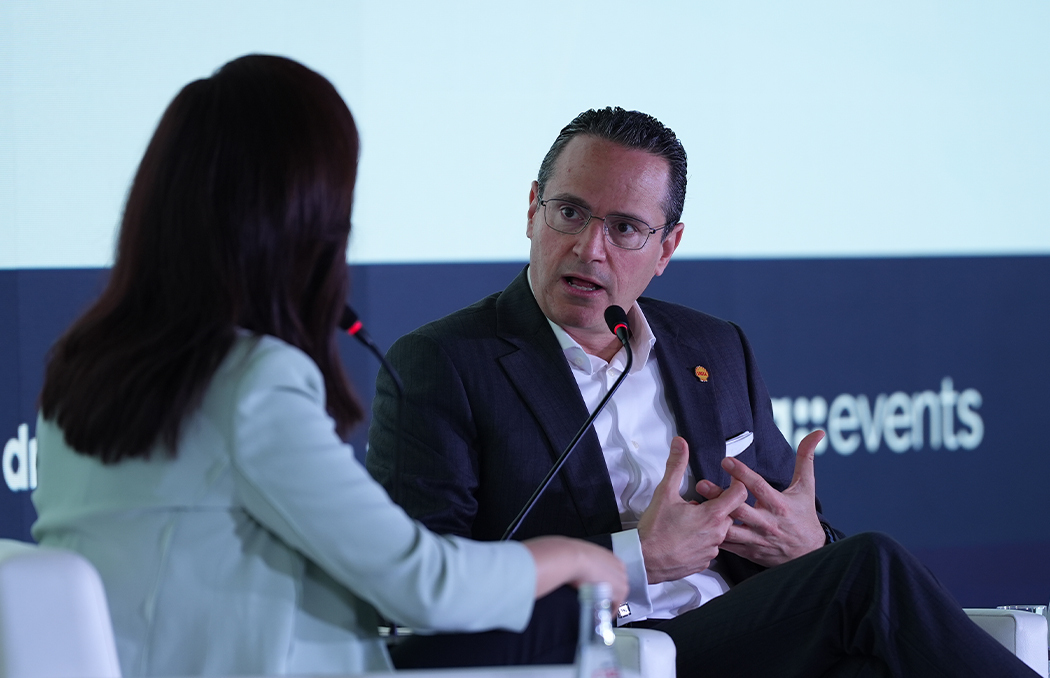Shell CEO Wael Sawan lays out long-term vision amid global energy shifts
At a time of mounting geopolitical tension and energy uncertainty, Shell CEO Wael Sawan took the stage at the Japan Energy Summit and Exhibition 2025 for a candid fireside chat on Thursday.
With conflict simmering in the Middle East, Sawan did not mince words: “What’s happening in the Middle East is top of my mind particularly with me being from the region.” He underscored the operational stakes: “It adds uncertainty to the region, making sure that our people and our assets are protected is our priority.”
While oil and gas prices have seen a “moderate” rise, the deeper concern is structural. “20% of the world oil supply comes from the region, especially with the talks surrounding the Strait of Hormuz,” Sawan warned. “Closing it would have a huge impact.”
Shell, he said, is already assessing alternative production points, but “finding an alternative for 20% supply it’s not easy and it would be a massive impact.” What is unfolding, he added, is more than market noise. “There is a fragmentation of traditional alliances, change in the world order and an imminent impact on the world of energy. We need to set actions for a new reality.”
From oversupply to fragility
On shifting OPEC dynamics, Sawan pointed to growing market fragility. “The Strait of Hormuz situation could dramatically disturb that balance,” he said. “The daily oil consumption is about 100 million [barrels], imagine the impact in price a shortage in millions could have… This would have a massive impact.”
Despite the noise, Shell remains steady. “There is always a certain degree of uncertainty, that is the only constant,” Sawan said. “Shell focuses on what they can control, on their strengths and what is good for business.”

A strategic pivot to LNG
Liquefied Natural Gas (LNG) is clearly one of those strengths. “LNG market will grow 60% from today to 2040, this is from 400 to 700 million tonnes,” Sawan said, touting both the environmental and geopolitical case. “LNG has 50% lower emissions compared to coal.”
He pointed to changing global dynamics. “The Russia situation has contributed to a change in the market with the US and Qatar now being leading players,” Sawan said. Asia’s demand is surging: “Increase in the demand of places like India and China has also contributed to the increase of the market size… there are currently orders for 2000 LNG ship carriers.”
Shell, he said, plays the long game. “We look at and pay attention to the short-term volatility, but we also pay attention to market changes and the energy needed to meet those changes.” Japan’s GX2040 plan and ASEAN growth reinforce the long-term LNG thesis.
Drilling and diversification
When asked about US President Donald Trump’s energy stance, Sawan said, “Every administration is different, certainly Trump is a very receptive administration looking for more affordable energy,” he said.
Shell, he noted, has a major Gulf of Mexico presence and maintains flexibility. “We navigate the directions coming from DC, we like what we see… we are a diversified multinational company.”
Geographic diversity is key. “We are expanding in other markets, ASIA, South America, Middle East, diversification of our production sources is important to keep a balance.”
Potential bp acquisition
When asked about reports that Shell might acquire bp, Sawan said, “If we are not the best company we can be, we should not consider buying someone else.”
Instead, Shell is focused inward. “We have a very good cash flow, but we need to reduce costs by US$20-30 billion… We believe in what we do, and we have focused on buying back our own shares, for instance. We are betting on ourselves.”
The company’s US$1-2 billion yearly M&A budget, he said, is used selectively and strategically and “not in a rush.” That strategy includes investment in renewable tech that leverages Shell’s molecular strengths, not just “installing solar panels and wind farms.”






